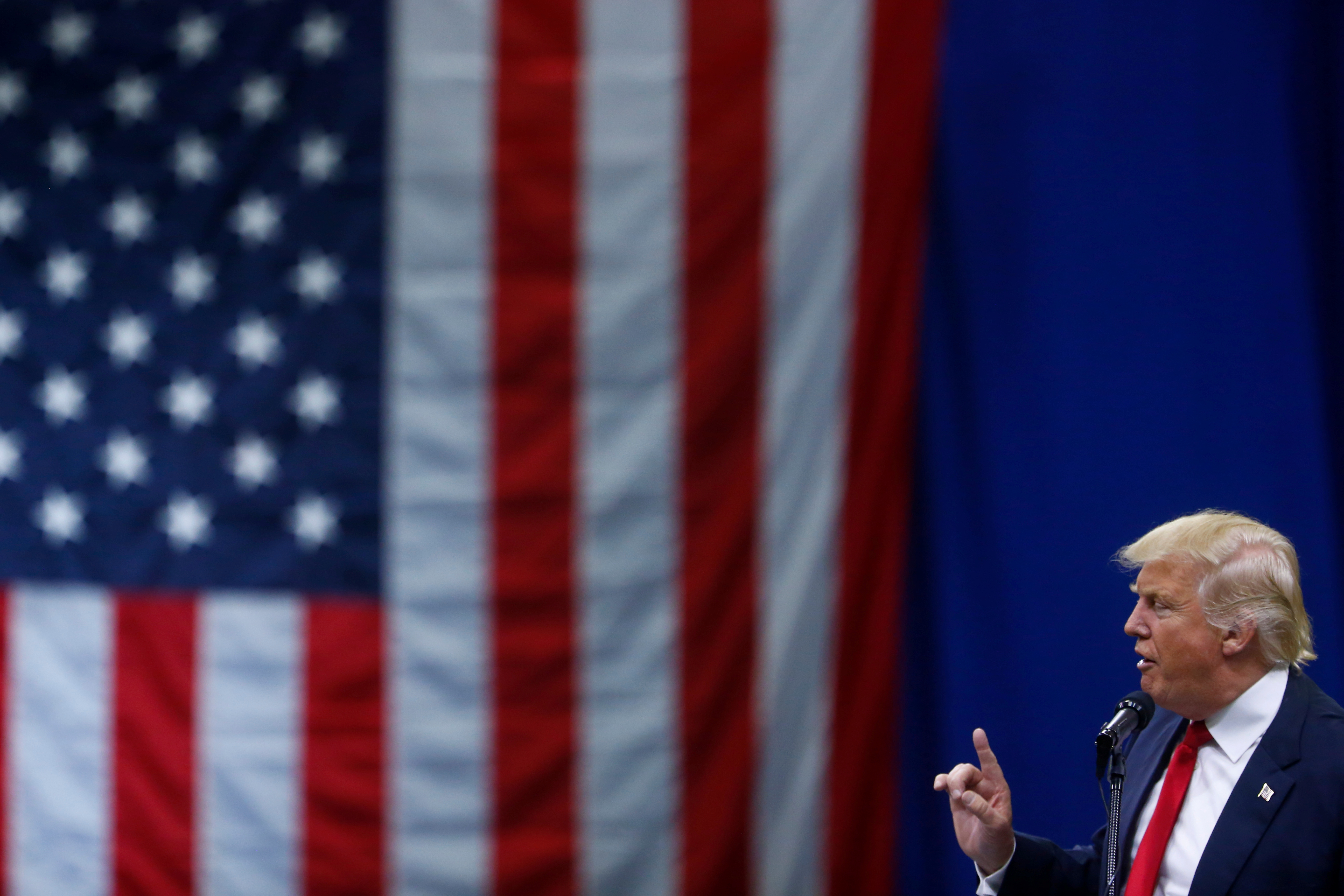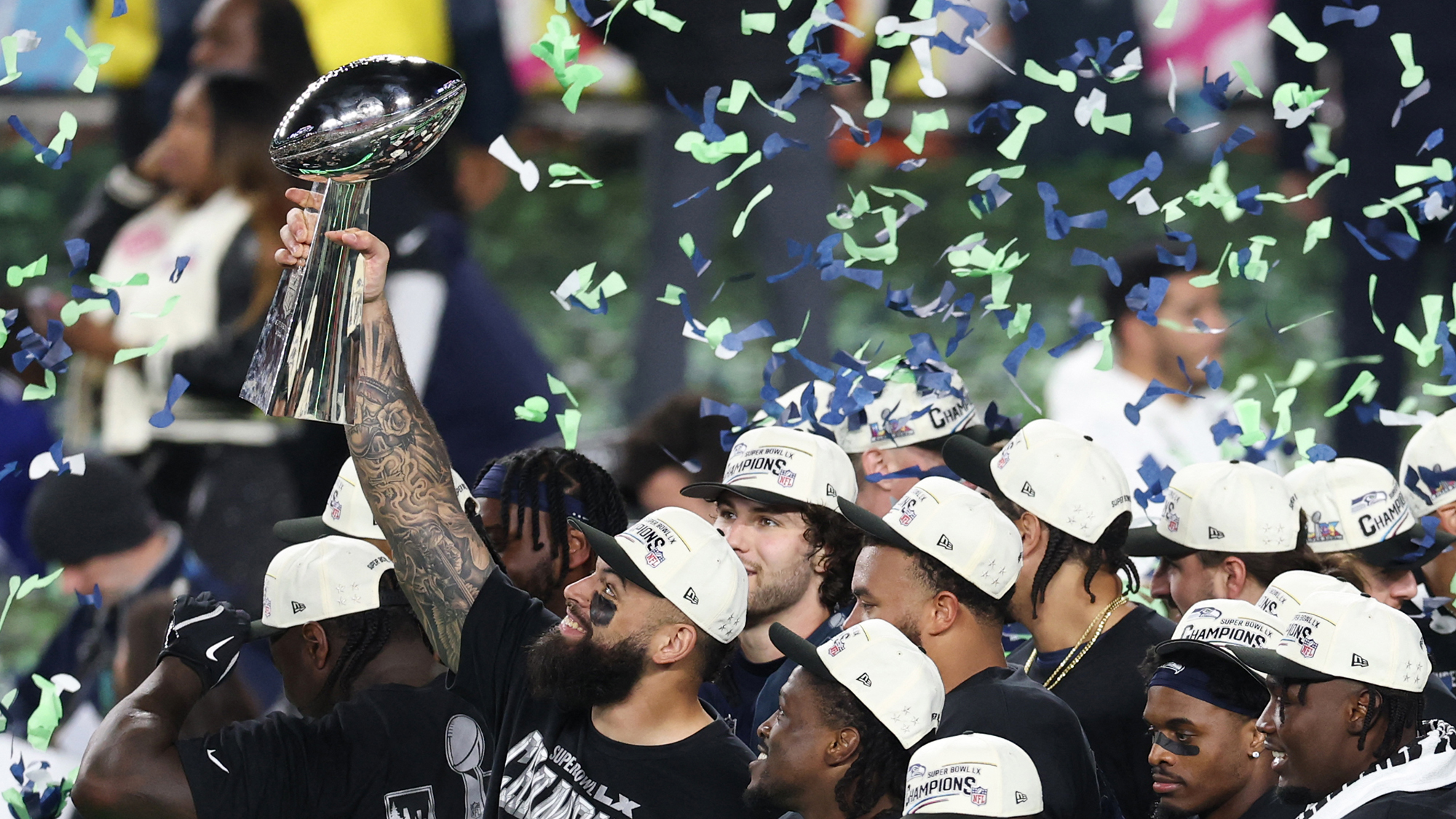Why Donald Trump's war against eggheads is backfiring
Donald Trump is losing badly among college-educated voters. If this continues, he's doomed.


A free daily email with the biggest news stories of the day – and the best features from TheWeek.com
You are now subscribed
Your newsletter sign-up was successful
Campaigning for president in 1952, Democratic nominee Adlai Stevenson was told by an enthusiastic voter that he had the support of every thinking person in the country. "That's not enough, madam," Stevenson supposedly answered. "We need a majority." Since those were the dark days before smartphones and Snapchat when a candidate could have an unrecorded conversation with a voter, we don't know for sure if it actually happened that way. But the story certainly resonated with Stevenson's image as an "egghead" too loftily intellectual to connect with the common folk.
In the years since, Democrats never stopped nominating intellectual candidates, not so much because that's what they thought the country wanted, but because that's what they themselves were attracted to. So there was an enduring contradiction: Democrats wanted to be simultaneously the party of the working person and the party of intellectuals. It was a contradiction Republicans exploited mercilessly, fostering resentment at the intellectual and cultural elite as a way of shifting focus from the economic elite on whose behalf they always labored. Don't worry about those tax cuts for the wealthy, they said, what you should really be angry about is a professor of ethnic studies no one has ever heard of who said something ridiculous. Those limousine liberals look down their nose at you and your small-town lowbrow ways, don't you know? Pull the lever for us, and you'll really show 'em.
But here's another contradiction: Even as Republicans encouraged everyone to sneer at the tweed-and-elbow-patch set, they were consistently winning the support of college-educated voters, especially college-educated whites. In fact, since we first started systematically collecting polling data in the 1950s, the Republican presidential candidate has never lost the college-educated white vote.
The Week
Escape your echo chamber. Get the facts behind the news, plus analysis from multiple perspectives.

Sign up for The Week's Free Newsletters
From our morning news briefing to a weekly Good News Newsletter, get the best of The Week delivered directly to your inbox.
From our morning news briefing to a weekly Good News Newsletter, get the best of The Week delivered directly to your inbox.
Donald Trump could be the first.
Over that history, this has been a story largely about class and race. But what's happening in 2016 is still striking: Many college-educated white voters seem to be deserting Trump, in large enough numbers that it could put the election out of reach for him, particularly when combined with his huge deficits among African-Americans, Latinos, and Asian-Americans. The latest ABC News/Washington Post poll shows Trump trailing Hillary Clinton 50-44 among college-educated whites, and losing women in that group by nearly 20 points. New NBC/Wall Street Journal/Marist polls in Iowa, Ohio, and Pennsylvania show Trump's support among college-educated whites plunging since before the conventions, leaving him trailing by 31, 8, and 21 points in those states respectively.
It isn't hard to figure out why Trump wouldn't do as well as previous Republican nominees among this group, even if he's offering the same tax cuts and regulatory rollback they did. As Ron Brownstein wrote not long ago, "Polls have also shown college-educated whites are much more positive than their blue-collar counterparts toward trade, immigration, and America's growing racial diversity — all of which makes them a difficult audience for Trump's insular agenda of defensive nationalism."
If we accept that racial minorities are lost to Trump, the only way he could make up for not winning college-educated whites (and winning them bigly, as he'd say) would be to run up enormous numbers among the working-class whites who make up much of his base. The problem is that he's already got them, and doesn't have much room to grow. Barack Obama lost them by 26 points in 2012 and still won comfortably. That's because they're declining as a proportion of the population with each passing year, because of fast-growing minority populations and increasing levels of education.
A free daily email with the biggest news stories of the day – and the best features from TheWeek.com
The limits on the size of this population that forms the core of Trump's support is creating problems for him in some unusual places. As Nate Cohn of The New York Times observes, Trump is underperforming in some Southern states like Georgia because there just aren't any more working-class white voters for him to win over. They're (almost) all Republicans already, so while he alienates minorities and college-educated whites, he can't make it up by winning over working-class white Democrats the way he might have a chance to in a place like Ohio or Michigan. And swing states with lots of college-educated whites, like Virginia or Colorado, are looking increasingly out of reach for him.
In so many ways, Trump took what the Republican Party was already trying to do with some measure of subtlety, then made it literal and unadorned. This is as true of his appeal to those with less education as it is of his rhetoric on immigration or Islam. The GOP has long promoted anti-intellectualism while simultaneously portraying itself as the "party of ideas," which made for a tricky line to walk. Even politicians like George W. Bush, while making a great show of being for reg'lar fellas, would at least pay some lip service to the idea that knowing things is worthwhile, and perhaps even superior, all else being equal, to not knowing things.
But Trump doesn't bother trying to make it seem like he understands policy issues, or even cares. When he announced his list of economic advisers, it contained only one trained economist. Ask him how he'll tackle a complex problem like health care reform, and he just promises "something terrific." Despite the fact that there's no evidence he's ever read an actual book, he'll say, "I'm, like, a really smart person." Have you ever known any genuinely smart people who kept telling you how smart they are?
If Trump realizes that losing the support of college-educated whites is a problem, he doesn't seem to want to do anything about it. Indeed, if there's anything that has marked Trump's general election campaign, it's that he seems to be speaking only to the voters who are already behind him. That's not going to be nearly enough.
Paul Waldman is a senior writer with The American Prospect magazine and a blogger for The Washington Post. His writing has appeared in dozens of newspapers, magazines, and web sites, and he is the author or co-author of four books on media and politics.
-
 Hong Kong jails democracy advocate Jimmy Lai
Hong Kong jails democracy advocate Jimmy LaiSpeed Read The former media tycoon was sentenced to 20 years in prison
-
 Japan’s Takaichi cements power with snap election win
Japan’s Takaichi cements power with snap election winSpeed Read President Donald Trump congratulated the conservative prime minister
-
 Seahawks trounce Patriots in Super Bowl LX
Seahawks trounce Patriots in Super Bowl LXSpeed Read The Seattle Seahawks won their second Super Bowl against the New England Patriots
-
 The billionaires’ wealth tax: a catastrophe for California?
The billionaires’ wealth tax: a catastrophe for California?Talking Point Peter Thiel and Larry Page preparing to change state residency
-
 Bari Weiss’ ‘60 Minutes’ scandal is about more than one report
Bari Weiss’ ‘60 Minutes’ scandal is about more than one reportIN THE SPOTLIGHT By blocking an approved segment on a controversial prison holding US deportees in El Salvador, the editor-in-chief of CBS News has become the main story
-
 Has Zohran Mamdani shown the Democrats how to win again?
Has Zohran Mamdani shown the Democrats how to win again?Today’s Big Question New York City mayoral election touted as victory for left-wing populists but moderate centrist wins elsewhere present more complex path for Democratic Party
-
 Millions turn out for anti-Trump ‘No Kings’ rallies
Millions turn out for anti-Trump ‘No Kings’ ralliesSpeed Read An estimated 7 million people participated, 2 million more than at the first ‘No Kings’ protest in June
-
 Ghislaine Maxwell: angling for a Trump pardon
Ghislaine Maxwell: angling for a Trump pardonTalking Point Convicted sex trafficker's testimony could shed new light on president's links to Jeffrey Epstein
-
 The last words and final moments of 40 presidents
The last words and final moments of 40 presidentsThe Explainer Some are eloquent quotes worthy of the holders of the highest office in the nation, and others... aren't
-
 The JFK files: the truth at last?
The JFK files: the truth at last?In The Spotlight More than 64,000 previously classified documents relating the 1963 assassination of John F. Kennedy have been released by the Trump administration
-
 'Seriously, not literally': how should the world take Donald Trump?
'Seriously, not literally': how should the world take Donald Trump?Today's big question White House rhetoric and reality look likely to become increasingly blurred
